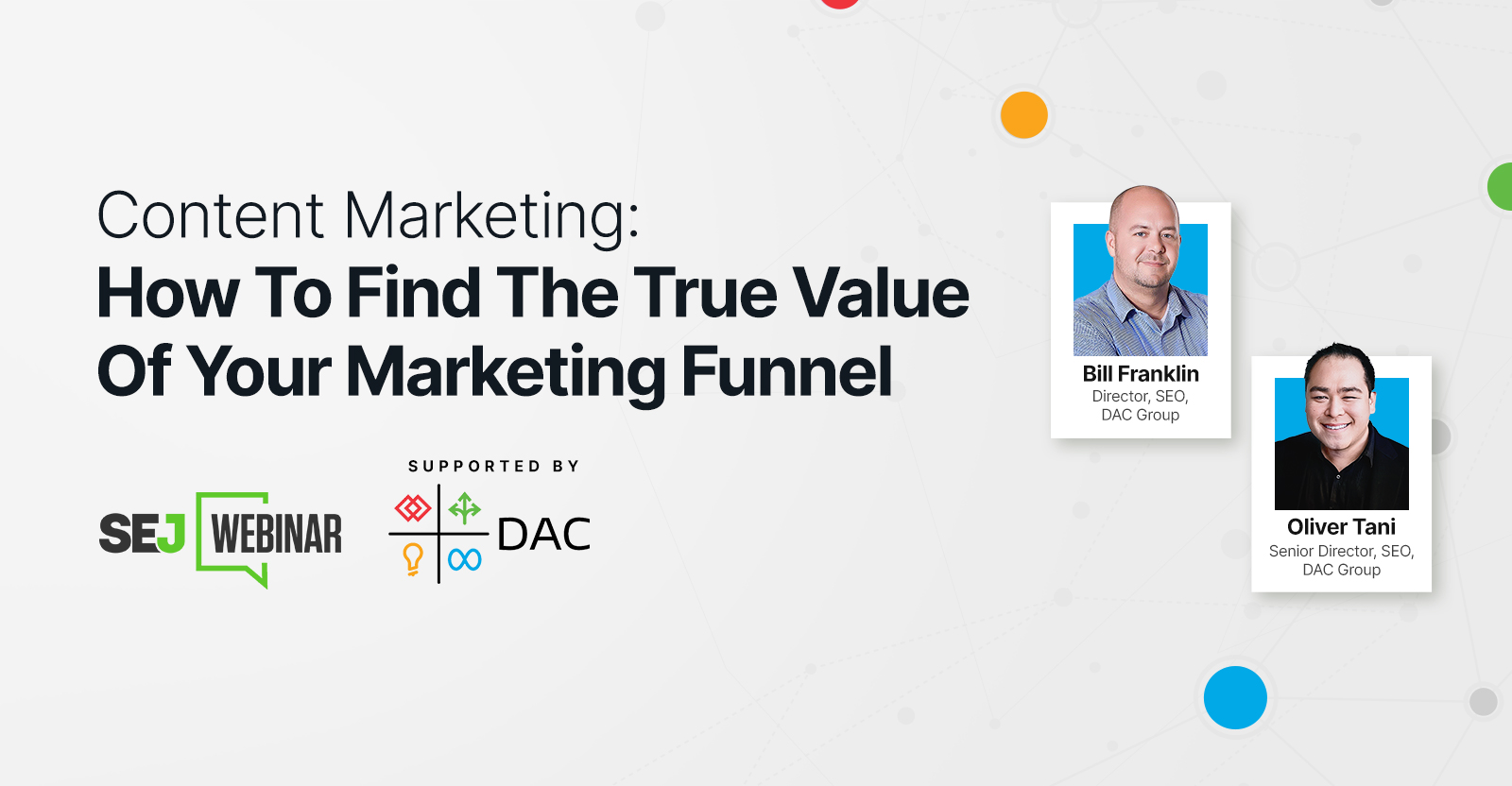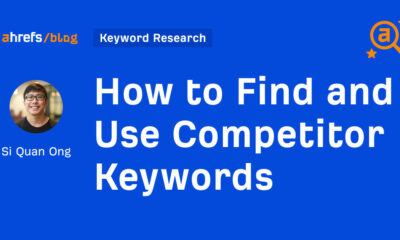SEO
Lessons From 10 Female Leaders To Inspire Your Professional Journey

Being a member and supporter of the Women in Tech SEO community, SE Ranking – which is an all-in-one, comprehensive SEO toolkit – is on a mission to make SEO accessible for everyone.
As we want to encourage female marketers to succeed professionally, we interviewed 10 prominent women in SEO and digital marketing.
These experts shared their outstanding experiences and life lessons, and we’re excited to share their wisdom with you.
Discover how to build leadership skills, overcome obstacles on your professional journey, and build success and resilience in your work life with these tips and advice from inspiring women leaders.
1. Encourage Telling People What They’re Worth
Carrie Rose, Founder Of Rise At Seven
The biggest obstacle on my path to success was earning the right to be trusted, respected, and backed as someone of young age at the time.
To combat this, I focused on being confident in my abilities and proving my worth through my work. This involved spending 50% of my time with clients and the other 50% doing the actual work, as well as freelancing to learn how to work independently without extensive resources.
This set me up for success, allowing me to start and scale my own agency to generating £7m a year in just 3 years, and I continue to stay involved in the work to this day as the Founder and CEO.
In the business and career world, I have faced gender discrimination beyond my expectations, as women statistically face more obstacles in achieving success, leadership roles, investment, and building a Fortune 500 company.
Even when launching my own agency with a male co-founder who owned an equal percentage of the business, the hate and negativity I got was on another scale.
I found that my opinions or case studies were questioned, and people were in disbelief at the results. I got a “prove it” response, whereas when my cofounder posted the same results, he got a “Congrats, great work.”
In terms of money, I have a slightly controversial opinion on the pay gap in the industry. Do I believe it exists? Yes. In my own case, I was paid less than a male coworker who started within the same two weeks as me, had the same experience, etc.
However, now being a founder, I can see an issue I believe to be true. I’ve found women are natural givers. They have “motherly” traits and do things because they care. And as a result, don’t ask for more money by doing more.
On the other hand, men are less likely to give for free. And more confident to ask for pay raises or higher salaries. This is a real issue. Therefore, here are some ways to overcome it:
- Encourage telling people what they’re worth. I’ve had many instances where I have offered a higher salary to people because I believed they were worth it. I gave them the confidence to know and understand their personal value and be open enough to talk about salaries.
- Create yearly pay review meetings with salary benchmarks for the industry. I think we as leaders need to give our staff the data they need to be confident to ask.
2. We’re Here To Amplify The Work Of Brilliant Women In The Industry
Areej AbuAli, Founder Of Crawlina & Women In Tech SEO

A few years ago, I was truly struggling to fit into the SEO community, and I wasn’t feeling motivated in the industry. I used to attend conferences but did not see myself represented, and I wasn’t too sure if it was a career path that I wanted to continue in.
I remember hearing about a few “exclusive” groups; you needed to be ‘invited’ to be a part of them or know someone. It just didn’t feel right.
So, I decided to start my own thing. I put out a call saying, “Women in Tech SEO, rejoice, we now have our own group.”
This was back in May 2019 – right away, I was surprised by how many people joined. It was over 100 in only 2 days. I made sure that we had rules and values in place.
Everyone who identified as a woman was more than welcome to join; it didn’t matter if they were starting out their SEO career or they had been in it for over a decade.
In other words, Women in Tech SEO is a global community for women in the Technical SEO industry; It’s a safe space for women to connect, learn and support one another. We’re here to amplify the work of brilliant women in the industry.
3. Believe In Yourself Because You Can Do It
Olga Zarr, CEO At SEOSLY

I know a lot of people who work at SEO agencies, and very often, women with more experience earn way less than their younger and less experienced male colleagues.
I have noticed that this is because they don’t dare ask for a raise and, when applying for a job, are afraid of asking for too much, fearing that they won’t be hired.
My piece of advice is to always talk about all your skills, including the ones you have not completely mastered (I noticed a lot of women won’t admit that they know something because they don’t know it perfectly, while males will often say they are experts at something they barely know).
And another tip is to always ask for way more than you think you should ask because your mind is most likely undervaluing you. Don’t get fooled by it.
Also, to help freelancers know their worth and be paid as much as they deserve, together with Myriam Jessier, we created SEO Cash Flow, which aims to help underrated freelancers earn more.
On the whole, my advice is to believe in yourself because you can do it. If you’re just beginning your journey, start by reading the Google SEO documentation from cover to cover.
Make sure to become part of the Women in Tech SEO community. Follow other female SEOs like myself, and don’t be afraid of reaching out to them. Most of them (if not all) will be happy to help you and give you free advice.
4. You Aren’t Alone – Let’s Help Support Each Other!
Tory Gray, Founder Of The Gray Dot Company

My biggest struggle on the way from an SEO specialist to a company founder has been about learning to trust myself, listen to myself effectively, and be willing to try and fail – and try again while also not ignoring or forgetting the needs of others.
When it comes to being an in-demand professional – soft skills – that’s where I see most growing SEO professionals lacking today.
There’s too much focus on gaining a specific, technical hard skill that will somehow magically make them feel confident and successful. In reality, most SEO pros need to learn how to be influential, impactful, and empathetic.
This all said, I do think it’s important for women specifically to focus on having a technical or data-focused hard skill of some sort. This is largely practical: Too often, women’s opinions and contributions are brushed aside.
Being better at a specific skill (or a few!) vs. the men in the room is the single biggest way to be heard and make room for yourself. You bring the data, you bring the informed analysis, and they have to listen to you. To be clear, this is not good or right, but it is a reality I’ve experienced.
If you’re just starting your career in the SEO industry, find a mentor! And a support group of women to talk to, learn from, and grow with. As the most important thing is knowing you aren’t alone – let’s help support each other!
5. Don’t Hesitate To Ask For More; You Deserve It!
Anastasia Kotsiubynska, SEO Team Lead At SE Ranking

I guess the most challenging part of becoming a team leader is when you become responsible for people, processes, and results.
That’s why to make progress, switching to a business-owner mindset is needed. This helps to see a wider perspective of how you can grow the company through what your team and you do.
But even if you are not in a manager position, leadership skills are important. To make things happen, you need to take responsibility, even if you’re not 100% sure you can handle situations and lead processes or people – if there’s a need or an opportunity to do this.
But the thing is, despite having remarkable abilities, one cannot be completely immune to bias in the professional setting.
Unfortunately, I’ve faced obvious sexism at one of my previous workplaces, where my manager used to say things like, ‘Women cannot think so effectively and be so technically wise as men.’
Some would expect the advice to prove the opposite with your work. But usually, it’s very hard to change people who build such an unhealthy discrimination-friendly environment – you might just end up having your self-esteem negatively affected.
Another problem is that often women in SEO get lower salaries than men, so they earn less because they tend to ask for less.
Just don’t hesitate to ask for more; you deserve it, but it is helpful to back up your request with solid arguments, data, and achievements.
6. Don’t Give Up! Take Help And Support From Other SEOs
Ulrika Viberg, Founder Of Unikorn & SEOGIRLS

Grabbing a chance really means creating an opportunity and working hard until it evolves into the next thing. Being a middle-aged woman in the SEO industry certainly didn’t give me any freebies, either.
I started working in the mid-’90s when we had a completely different working atmosphere in terms of gender equality. Things have changed since, even if we feel it hasn’t changed enough.
Even if it has become better over the years, women still experience not being listened to or taken seriously and being questioned whether they know what they are talking about.
Women in SEO often find their knowledge being tested every now and then like it’s an unannounced pop quiz. In the past, I dealt with it the way we women did then: by coming more prepared than our male colleagues. Working harder, reading up on matters more carefully, and walking two extra miles.
While I think this is still true, we have become much better at supporting each other, lifting brilliant women in the community, and opening up to discuss these discriminations publicly. All of this helps.
So, if you’re just starting your career, my advice is: Don’t give up! Take help and support from other SEOs!
Reach out to Women in Tech SEO and other communities for women in SEO, like SEOGIRLS in Sweden, which is a safe place for women to discuss SEO without experiencing mansplaining or being talked over by male colleagues.
We are there for you to support you in your journey!
7. The Goal Is To Remove Or At Least Minimize Discrimination At Work
Motoko Hunt, Founder Of AJPR

Besides having the skills to perform SEO work at an excellent level, you need to have good management, adaptability, curiosity, and critical thinking skills. At the same time, you don’t need to be a Jill of all trades. Instead, find the niche that separates you from others.
However, even the most exceptional skills cannot provide absolute protection from workplace discrimination. I have experienced both gender and racial discrimination, not just in my current work but also in my previous jobs.
That comes in different ways and is not always an “in your face” incident. For example, when I was ready to go on an important business trip, the management felt it was for men only as I had children.
I believe the goal is to remove or at least minimize discrimination at work. Though it’s important to let them know that it’s a problem at the time of the incident.
Rather than just react, I suggest you document them and discuss them with the management and HR. If other employees are experiencing similar problems, doing this as a group will give you a bigger voice.
Another problem is the payment gap between men and women, which is not unique to the SEO industry.
So, when you need to negotiate anything with the company, you need to prepare. When you discuss the salary (or the promotion), “I’ve been working hard” or “I deserve more” aren’t the best way to approach it.
You have a better chance of succeeding in the negotiation if you can quantify your value to the company, i.e., the increase in conversions/sales your work brought to the company.
8. Show Your Worth And Ask For More!
Aleyda Solís, Founder of Orainti

Sadly, the SEO industry’s payment gap between men and women is certainly there. How to deal with it? Show your worth and ask for more! What’s the worst that can happen? That they say no? Perfect – ask for more!
If you want to succeed in the SEO industry, I would recommend having an overall knowledge of the SEO process, how it all works, and every activity/area that influences it: how a search engine works, how people search, crawl, indexing, content relevance, link popularity, etc.
Then, depending on your skills and preferences, you might want to focus on technical SEO, content optimization, link building, or in a specific area, like local SEO or ecommerce SEO.
Whatever you choose, ensure you understand how it works from a tactical standpoint and how it aligns and fits from a strategic one to the whole SEO process.
Then, learn about communication, prioritization, coordination, influence, and project management, which will allow you to successfully sell and manage SEO processes, whether as an external solo consultant, in an agency, or in-house. These are critical skills.
I highly recommend those looking to learn more about SEO take a look at LearningSEO to go through all of these areas and learn about them.
And at work, remember to always be professional, show up and do what you said you would do, and commit and focus on your project’s success and your own as a professional!
9. Be Your Own Biggest Advocate
Chima Mmeje, Founder Of The Freelance Coalition For Developing Countries

I don’t think there’s any woman in any industry who hasn’t experienced gender discrimination. It’s sadly a part of our lives.
I feel like some men speak to women in a condescending tone they wouldn’t use with other men. I hear it in the way they cut me off when I’m speaking, brush off my ideas, or try to mansplain something to me.
I try to establish authority early in the conversation to show my expertise. I share my ideas and encourage mutual respect if we’re to have a healthy working relationship. Most importantly, I advocate for myself to ensure my voice is heard when I’m in the room because commanding authority leads to respect.
If you want to achieve outstanding results in your professional life, listening has to be at the top of the list for soft skills. Hard skills depend on your industry, but everyone should learn to write. It’s such an underrated skill, even for developers and technically inclined folks.
You can build a personal brand when you know how to communicate with your preferred audience using words they connect with.
Also, staying nimble, especially in the age of AI, is an essential skill. We need to constantly learn how to use AI as a friend to improve our current processes instead of ignoring it because it’s not going away.
What advice would I give to women who want to succeed in their SEO careers? Just get in there! There’s nothing to be afraid of. Ask questions, even when it sounds dumb in your ears.
Build your own website and use it as a testing ground to improve your skill. Document your progress in public so people can help you along your journey.
Be your own biggest advocate because you’re working in an industry where people will question your authority and skills every step of the way.
10. Ask, And People Will Help You
Jo Juliana Turnbull, Founder of Search London and Turn Digi

In our industry, the hard skills that help to succeed are knowing the area you want to specialize in or having a broad knowledge of SEO.
Technical SEO, on page optimization, and digital PR require learning on the job and/or taking a course with a supportive team member to answer your questions.
One of the biggest soft skills is the determination to keep learning. I talk a lot about soft skills, and these are the ones that are important to SEOs (and in many industries).
- Emotional intelligence: Self-awareness, self-regulation, motivation, empathy, social skills.
- Communication: Be a clear communicator and be aware of nonverbal communication.
- Empathy: Ability to understand and sense other people’s emotions.
- Active listening: Conscious efforts to hear the words and engage the speaker.
- Confidence: The feeling one can do a task well.
Overall, learn as much as you can, and find a good support system and a great mentor. If you do not know something, ask, and people will help you.
I would also recommend taking the CliftonStrengths Assessment. This way, you can find out your natural strengths, which, when you work on them, turn into your talents.
To sum up, if you’re a female marketer and want to succeed in the SEO industry, you need to:
- Be brave enough to stand up for yourself.
- Value your skills, experience, and expertise, and never stop evolving.
- Don’t be afraid to ask for more.
- Network with other professionals in the industry. The people you connect with will become your friends and mentors with whom you can share your struggles and happiness.
- Remember that people are always here to support you.
More resources:
Featured Image from author
SEO
Measuring Content Impact Across The Customer Journey

Understanding the impact of your content at every touchpoint of the customer journey is essential – but that’s easier said than done. From attracting potential leads to nurturing them into loyal customers, there are many touchpoints to look into.
So how do you identify and take advantage of these opportunities for growth?
Watch this on-demand webinar and learn a comprehensive approach for measuring the value of your content initiatives, so you can optimize resource allocation for maximum impact.
You’ll learn:
- Fresh methods for measuring your content’s impact.
- Fascinating insights using first-touch attribution, and how it differs from the usual last-touch perspective.
- Ways to persuade decision-makers to invest in more content by showcasing its value convincingly.
With Bill Franklin and Oliver Tani of DAC Group, we unravel the nuances of attribution modeling, emphasizing the significance of layering first-touch and last-touch attribution within your measurement strategy.
Check out these insights to help you craft compelling content tailored to each stage, using an approach rooted in first-hand experience to ensure your content resonates.
Whether you’re a seasoned marketer or new to content measurement, this webinar promises valuable insights and actionable tactics to elevate your SEO game and optimize your content initiatives for success.
View the slides below or check out the full webinar for all the details.
SEO
How to Find and Use Competitor Keywords

Competitor keywords are the keywords your rivals rank for in Google’s search results. They may rank organically or pay for Google Ads to rank in the paid results.
Knowing your competitors’ keywords is the easiest form of keyword research. If your competitors rank for or target particular keywords, it might be worth it for you to target them, too.
There is no way to see your competitors’ keywords without a tool like Ahrefs, which has a database of keywords and the sites that rank for them. As far as we know, Ahrefs has the biggest database of these keywords.
How to find all the keywords your competitor ranks for
- Go to Ahrefs’ Site Explorer
- Enter your competitor’s domain
- Go to the Organic keywords report
The report is sorted by traffic to show you the keywords sending your competitor the most visits. For example, Mailchimp gets most of its organic traffic from the keyword “mailchimp.”


Since you’re unlikely to rank for your competitor’s brand, you might want to exclude branded keywords from the report. You can do this by adding a Keyword > Doesn’t contain filter. In this example, we’ll filter out keywords containing “mailchimp” or any potential misspellings:


If you’re a new brand competing with one that’s established, you might also want to look for popular low-difficulty keywords. You can do this by setting the Volume filter to a minimum of 500 and the KD filter to a maximum of 10.


How to find keywords your competitor ranks for, but you don’t
- Go to Competitive Analysis
- Enter your domain in the This target doesn’t rank for section
- Enter your competitor’s domain in the But these competitors do section


Hit “Show keyword opportunities,” and you’ll see all the keywords your competitor ranks for, but you don’t.


You can also add a Volume and KD filter to find popular, low-difficulty keywords in this report.


How to find keywords multiple competitors rank for, but you don’t
- Go to Competitive Analysis
- Enter your domain in the This target doesn’t rank for section
- Enter the domains of multiple competitors in the But these competitors do section


You’ll see all the keywords that at least one of these competitors ranks for, but you don’t.


You can also narrow the list down to keywords that all competitors rank for. Click on the Competitors’ positions filter and choose All 3 competitors:


- Go to Ahrefs’ Site Explorer
- Enter your competitor’s domain
- Go to the Paid keywords report


This report shows you the keywords your competitors are targeting via Google Ads.
Since your competitor is paying for traffic from these keywords, it may indicate that they’re profitable for them—and could be for you, too.
You know what keywords your competitors are ranking for or bidding on. But what do you do with them? There are basically three options.
1. Create pages to target these keywords
You can only rank for keywords if you have content about them. So, the most straightforward thing you can do for competitors’ keywords you want to rank for is to create pages to target them.
However, before you do this, it’s worth clustering your competitor’s keywords by Parent Topic. This will group keywords that mean the same or similar things so you can target them all with one page.
Here’s how to do that:
- Export your competitor’s keywords, either from the Organic Keywords or Content Gap report
- Paste them into Keywords Explorer
- Click the “Clusters by Parent Topic” tab


For example, MailChimp ranks for keywords like “what is digital marketing” and “digital marketing definition.” These and many others get clustered under the Parent Topic of “digital marketing” because people searching for them are all looking for the same thing: a definition of digital marketing. You only need to create one page to potentially rank for all these keywords.


2. Optimize existing content by filling subtopics
You don’t always need to create new content to rank for competitors’ keywords. Sometimes, you can optimize the content you already have to rank for them.
How do you know which keywords you can do this for? Try this:
- Export your competitor’s keywords
- Paste them into Keywords Explorer
- Click the “Clusters by Parent Topic” tab
- Look for Parent Topics you already have content about
For example, if we analyze our competitor, we can see that seven keywords they rank for fall under the Parent Topic of “press release template.”


If we search our site, we see that we already have a page about this topic.


If we click the caret and check the keywords in the cluster, we see keywords like “press release example” and “press release format.”


To rank for the keywords in the cluster, we can probably optimize the page we already have by adding sections about the subtopics of “press release examples” and “press release format.”
3. Target these keywords with Google Ads
Paid keywords are the simplest—look through the report and see if there are any relevant keywords you might want to target, too.
For example, Mailchimp is bidding for the keyword “how to create a newsletter.”


If you’re ConvertKit, you may also want to target this keyword since it’s relevant.
If you decide to target the same keyword via Google Ads, you can hover over the magnifying glass to see the ads your competitor is using.


You can also see the landing page your competitor directs ad traffic to under the URL column.


Learn more
Check out more tutorials on how to do competitor keyword analysis:
SEO
Google Confirms Links Are Not That Important

Google’s Gary Illyes confirmed at a recent search marketing conference that Google needs very few links, adding to the growing body of evidence that publishers need to focus on other factors. Gary tweeted confirmation that he indeed say those words.
Background Of Links For Ranking
Links were discovered in the late 1990’s to be a good signal for search engines to use for validating how authoritative a website is and then Google discovered soon after that anchor text could be used to provide semantic signals about what a webpage was about.
One of the most important research papers was Authoritative Sources in a Hyperlinked Environment by Jon M. Kleinberg, published around 1998 (link to research paper at the end of the article). The main discovery of this research paper is that there is too many web pages and there was no objective way to filter search results for quality in order to rank web pages for a subjective idea of relevance.
The author of the research paper discovered that links could be used as an objective filter for authoritativeness.
Kleinberg wrote:
“To provide effective search methods under these conditions, one needs a way to filter, from among a huge collection of relevant pages, a small set of the most “authoritative” or ‘definitive’ ones.”
This is the most influential research paper on links because it kick-started more research on ways to use links beyond as an authority metric but as a subjective metric for relevance.
Objective is something factual. Subjective is something that’s closer to an opinion. The founders of Google discovered how to use the subjective opinions of the Internet as a relevance metric for what to rank in the search results.
What Larry Page and Sergey Brin discovered and shared in their research paper (The Anatomy of a Large-Scale Hypertextual Web Search Engine – link at end of this article) was that it was possible to harness the power of anchor text to determine the subjective opinion of relevance from actual humans. It was essentially crowdsourcing the opinions of millions of website expressed through the link structure between each webpage.
What Did Gary Illyes Say About Links In 2024?
At a recent search conference in Bulgaria, Google’s Gary Illyes made a comment about how Google doesn’t really need that many links and how Google has made links less important.
Patrick Stox tweeted about what he heard at the search conference:
” ‘We need very few links to rank pages… Over the years we’ve made links less important.’ @methode #serpconf2024″
Google’s Gary Illyes tweeted a confirmation of that statement:
“I shouldn’t have said that… I definitely shouldn’t have said that”
Why Links Matter Less
The initial state of anchor text when Google first used links for ranking purposes was absolutely non-spammy, which is why it was so useful. Hyperlinks were primarily used as a way to send traffic from one website to another website.
But by 2004 or 2005 Google was using statistical analysis to detect manipulated links, then around 2004 “powered-by” links in website footers stopped passing anchor text value, and by 2006 links close to the words “advertising” stopped passing link value, links from directories stopped passing ranking value and by 2012 Google deployed a massive link algorithm called Penguin that destroyed the rankings of likely millions of websites, many of which were using guest posting.
The link signal eventually became so bad that Google decided in 2019 to selectively use nofollow links for ranking purposes. Google’s Gary Illyes confirmed that the change to nofollow was made because of the link signal.
Google Explicitly Confirms That Links Matter Less
In 2023 Google’s Gary Illyes shared at a PubCon Austin that links were not even in the top 3 of ranking factors. Then in March 2024, coinciding with the March 2024 Core Algorithm Update, Google updated their spam policies documentation to downplay the importance of links for ranking purposes.
The documentation previously said:
“Google uses links as an important factor in determining the relevancy of web pages.”
The update to the documentation that mentioned links was updated to remove the word important.
Links are not just listed as just another factor:
“Google uses links as a factor in determining the relevancy of web pages.”
At the beginning of April Google’s John Mueller advised that there are more useful SEO activities to engage on than links.
Mueller explained:
“There are more important things for websites nowadays, and over-focusing on links will often result in you wasting your time doing things that don’t make your website better overall”
Finally, Gary Illyes explicitly said that Google needs very few links to rank webpages and confirmed it.
I shouldn’t have said that… I definitely shouldn’t have said that
— Gary 鯨理/경리 Illyes (so official, trust me) (@methode) April 19, 2024
Why Google Doesn’t Need Links
The reason why Google doesn’t need many links is likely because of the extent of AI and natural language undertanding that Google uses in their algorithms. Google must be highly confident in its algorithm to be able to explicitly say that they don’t need it.
Way back when Google implemented the nofollow into the algorithm there were many link builders who sold comment spam links who continued to lie that comment spam still worked. As someone who started link building at the very beginning of modern SEO (I was the moderator of the link building forum at the #1 SEO forum of that time), I can say with confidence that links have stopped playing much of a role in rankings beginning several years ago, which is why I stopped about five or six years ago.
Read the research papers
Authoritative Sources in a Hyperlinked Environment – Jon M. Kleinberg (PDF)
The Anatomy of a Large-Scale Hypertextual Web Search Engine
Featured Image by Shutterstock/RYO Alexandre
-

 PPC4 days ago
PPC4 days ago19 Best SEO Tools in 2024 (For Every Use Case)
-

 MARKETING7 days ago
MARKETING7 days agoWill Google Buy HubSpot? | Content Marketing Institute
-
SEARCHENGINES7 days ago
Daily Search Forum Recap: April 16, 2024
-

 SEO7 days ago
SEO7 days agoGoogle Clarifies Vacation Rental Structured Data
-

 MARKETING6 days ago
MARKETING6 days agoStreamlining Processes for Increased Efficiency and Results
-
SEARCHENGINES6 days ago
Daily Search Forum Recap: April 17, 2024
-

 SEO6 days ago
SEO6 days agoAn In-Depth Guide And Best Practices For Mobile SEO
-

 PPC6 days ago
PPC6 days ago97 Marvelous May Content Ideas for Blog Posts, Videos, & More














